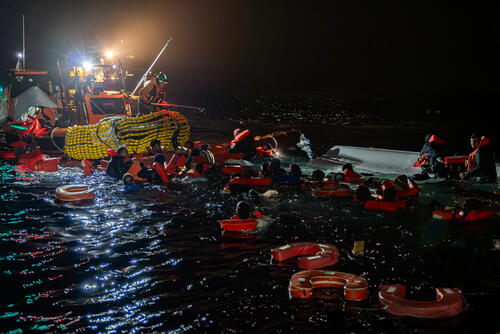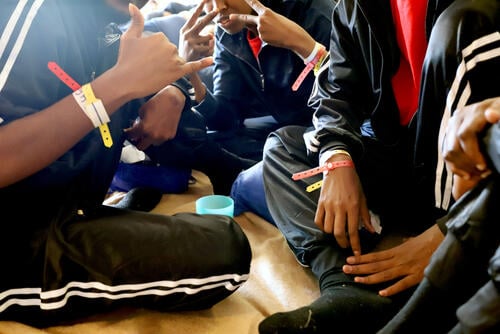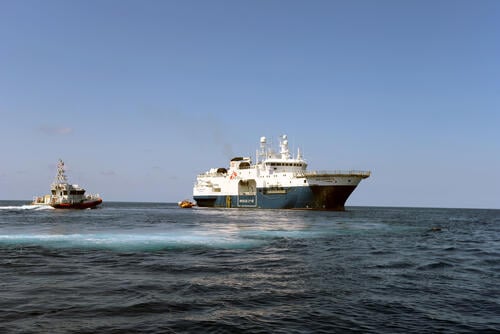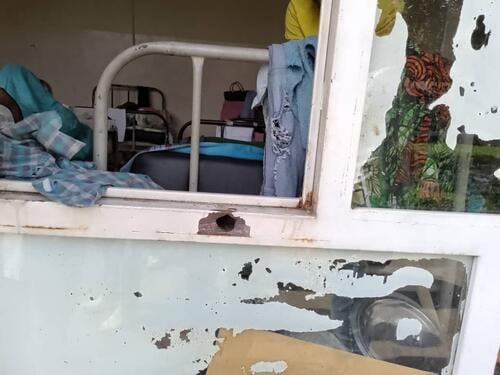Rome - After seven years of false accusations, defamatory statements, and a blatant criminalisation campaign towards organisations performing search and rescue operations at sea, the investigation launched by the prosecutor’s office in Trapani, Sicily, Italy, in late 2016, was dismissed today.
The case saw Médecins Sans Frontières (MSF), and other organisations conducting search and rescue activities, investigated on the unfounded charge of aiding and abetting ‘illegal immigration’. It involved a mammoth indictment based on inferences, wiretaps, false statements, and an interpretation of rescue mechanisms that was deliberately distorted to present them as criminal acts.
However, after a two-year preliminary hearing, the same prosecutor’s office that opened the investigation acknowledged that the evidence showed that the NGOs were working with the sole intention of saving lives, and asked that the case not continue to trial. The judge has now definitively closed the case, citing the baselessness of the accusations and erasing any suspicion of collaboration with smugglers.

“These unfounded accusations have attempted to tarnish the work of humanitarian search and rescue teams for years,” says Dr Christos Christou, MSF International President. “They were intended to remove vessels from the sea, and to counter efforts of saving lives and bearing witness. Now these accusations have collapsed.”
“Our thoughts are with our colleagues from MSF, and other organisations, who have been living under the weight of accusations for legitimately doing their jobs: saving people in distress at sea, in full transparency and compliance with the laws,” says Dr Christou.
During the seven-year limbo, in waiting for the ruling on this case, attacks on search and rescue activities have continued through a series of harmful policies. These include restrictive laws, the detention of civilian vessels, and providing support to the Libyan Coast Guard, which hinders rescues, and exacerbates suffering and human rights violations for people forcibly returned to Libya. Meanwhile, deaths in the Mediterranean Sea have continued to rise. The impact is horrific: 2023 was the year with the highest number of deaths since the allegations were first made against our team members in 2017.
These unfounded accusations have attempted to tarnish the work of humanitarian search and rescue teams for years.Dr Christos Christou, MSF International President
According to the EU Fundamental Rights Agency, at least 63 legal or administrative cases have been brought by European Union states against search and rescue NGOs (June 2023). In the past year, Italian authorities have detained humanitarian rescue vessels 21 times, amounting to 460 days where they were prevented to assist people in distress at sea. MSF’s search and rescue vessel, Geo Barents, has just resumed operations after 20 days of unjust detention on the fallacious charge of endangering people’s lives, after a Libyan patrol boat violently interrupted an ongoing rescue operation.
In addition, humanitarian ships are continuously being assigned distant ports in the north of Italy to disembark survivors, keeping them away from the search and rescue area longer, while people’s lives are at risk.
Together with cynical policies of outsourcing border management to unsafe third countries, such as Libya, Italy and European Union states are turning their back on people seeking safety in Europe, contributing to fuelling human suffering, and ultimately showing a complete disregard for the protection of human lives.

“In these years, the Italian authorities have invested enormous resources in creating barriers to humanitarian action and in policies of death, while doing nothing to stop shipwrecks and open legal and safe routes for people fleeing through the Mediterranean,” says Tommaso Fabbri, former MSF head of mission, who was involved in the case. “Saving lives is not a crime, it is a moral and legal obligation, a fundamental act of humanity which simply must be done.”
“Stop criminalising solidarity!” exclaims Fabbri. “All efforts must go into preventing unacceptable deaths and suffering, and guaranteeing the right to rescue – bringing back humanity and the right to life in the Mediterranean Sea.”
MSF teams first began search and rescue operations in the Mediterranean Sea in 2015, to fill the void left by the closure of the Mare Nostrum rescue operation. Since then, eight different MSF ships have helped to save more than 92,000 lives. Despite the barriers, we have not ceased our search and rescue operations, and to this day our teams are engaged in rescue operations onboard our current vessel, Geo Barents.
“Our aid workers never stopped operating in MSF interventions across the world, just as our ships never stopped saving lives at sea,” says Dr Christou. “This has been our best response to all the accusations.”





